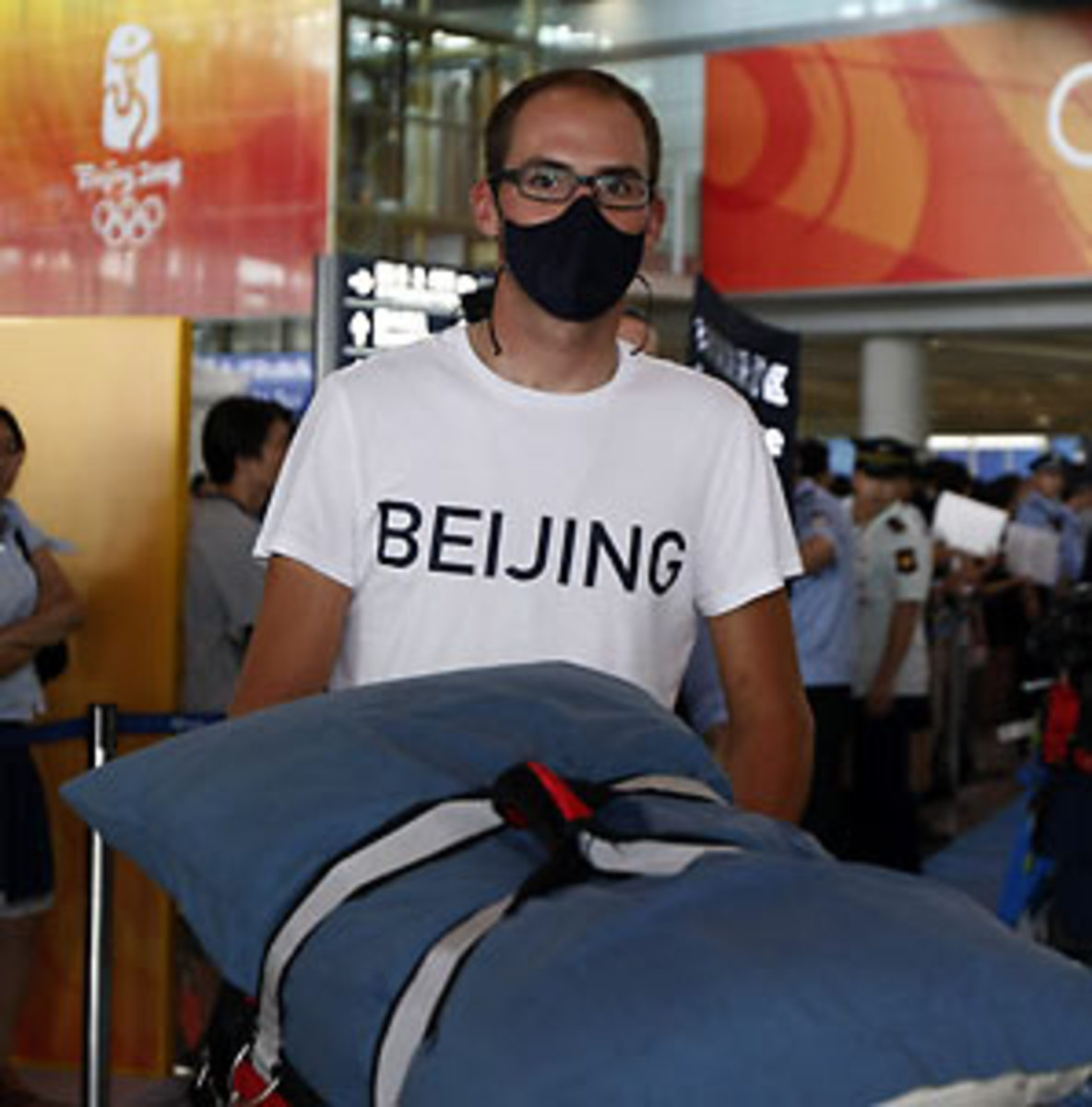Beijing quickly becoming Spin City
"Every time you turn your head," one messenger said, "you see something beautiful."
Yes, once the Visine kicks in you'll find any sign of decay or poverty within the pan of a camera has been walled off by Chinese officials obsessed with political appearances. But the Olympic masters sitting at a podium for a press conference in matching blazers refused to recognize what lies beneath the Communist regime's welcome mat.
Who were these pushers of the People's Republic behind the dais? They weren't official greeters from the Beijing Games machinery. They were leaders of the United States Olympic Committee, all but sitting on the knee of the host city, in ventriloquist doll pose, issuing talking points made in China. The architecture is divine, the food exquisite and the accommodations luxe. It's a pop-up city marvel.
"If I were to issue a gold medal," USOC Chairman Peter Ueberroth gushed, "I'd issue one to the people [of Beijing]."
On every hot-button issue (Joey Cheek's visa hocus-pocus), and even the tepid ones (medal-count mania), the USOC executives said exactly what Beijing organizers wanted them to say until it was actually un-American. The USOC was sorry -- so very sorry -- that its band of cyclists embarrassed China by arriving at the Beijing airport wearing black pollution masks that made them look like stage-coach robbers.
"It wasn't the best judgment," said Jim Scherr, CEO of the USOC. "The athletes understand that now."
You can understand the athletes' confusion, though. The USOC did design the filter masks, distribute 200 of them to athletes and, by simple math, surely knew a few of them might wear them. Just not at the airport, in front of cameras.
The USOC made sure the cyclists understood this breach of guest etiquette by scolding them to tears, eliciting an official apology from Michael Friedman, Sarah Hammer, Bobby Lea and Jennie Reed: "Following our arrival on Tuesday, we offer our sincere apologies to BOCOG, the city of Beijing, and the people of China if our actions were in any way offensive. That was not our intent. ... We deeply regret the nature of our choices. Our decision was not intended to insult BOCOG or countless others who have put forth a tremendous amount of effort to improve the air quality in Beijing."
Why did the cyclists' sorrow sound like a confessional coerced beneath a naked light bulb? In playing by China's rules the USOC acted as if it had adopted the host nation's rigid mores, its inflexible ethos. "We accepted an invitation," said Ueberroth. "We have the ability not to go."
This is a false choice. The invitation was to the Summer Games, not a masquerade ball where every country dresses up like propaganda tools and plays along with the host's ideology for 17 days. So why did Ueberroth sound like a pitch man for the new China's old ways?
For one, he makes it clear that he owes China for saving the 1984 Olympics -- or the Peter Ueberroth Summer Games as its organizer -- when the Chinese government broke with the Soviet Union boycott and arrived in Los Angeles. It changed everything, Ueberroth kept saying. Several times during the lengthy press conference, Ueberroth expressed his gratitude to China, letting his personal thank you turn into perpetual debt service to the nation.
There was also another, perhaps far more important, reason for the USOC to play nice with China: fear of retribution for criticizing the Beijing Games. The Americans are already on edge about the medal count, knowing they could fall short of expectations and short of China, and would not want to compromise the outcome of any event by agitating the hosts.
It may sound far-fetched, but this is the Olympics, home to French judge scandals in ice skating and doping cheats worldwide. Conspiracy theories are part of the Games. But paranoia should not seed an excuse for Ueberroth -- or anyone from the USOC -- to self-censor their American dignity in order to step lightly around China because every topic is a tripwire to Beijing's sensitive psyche.
"[No one] is trying to change the world," said Ueberroth. And yet isn't the promise of change -- including a vow of clean air -- why China received the Olympics in the first place? Anyone with a drop of Visine can see that.





